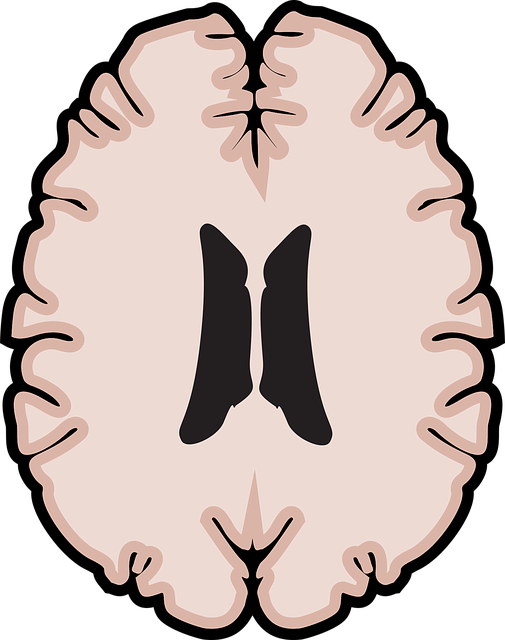In Colorado Springs, cultural sensitivity is crucial for effective mental healthcare, especially in addressing workplace issues and job stress. Therapists must be culturally competent, understanding diverse perceptions of mental illness and coping strategies, to build trust and encourage open dialogue. This includes integrating techniques like positive thinking, specialized training, and traditional healing methods alongside Western psychology. By adapting their approaches and promoting inclusive practices, therapists can significantly improve therapeutic outcomes for clients from various cultural backgrounds in Colorado Springs Workplace Issues and Job Stress Therapy.
“Navigating Cultural Sensitivity in Mental Healthcare: A Comprehensive Guide
In today’s diverse society, understanding cultural sensitivity is paramount in mental healthcare. This article delves into the essence of cultural sensitivity, highlighting its profound impact on therapeutic relationships, especially in the context of Colorado Springs Workplace Issues and Job Stress Therapy. We explore how cultural differences shape therapy, offering practical strategies for therapists to integrate cultural competency. By examining specific challenges faced by Colorado Springs residents, we provide insights into fostering culturally sensitive work environments, revolutionizing mental health support.”
- Understanding Cultural Sensitivity in Mental Healthcare
- – Defining cultural sensitivity and its importance in mental health practice
- – The impact of cultural differences on therapy and therapeutic relationships
Understanding Cultural Sensitivity in Mental Healthcare

Cultural sensitivity is a cornerstone in mental healthcare practice, especially in diverse communities like Colorado Springs. Understanding and respecting cultural differences can significantly enhance therapeutic outcomes for clients dealing with workplace issues and job stress. In this context, it involves recognizing that mental illness experiences vary across cultures due to differing beliefs, values, and practices related to health, spirituality, and the expression of emotions.
For instance, what constitutes ‘mental illness’ and appropriate coping strategies can differ greatly. Some communities may have unique ways of expressing distress or seek support from traditional healers alongside or instead of Western psychological services. Therefore, therapists in Colorado Springs Workplace Issues and Job Stress Therapy must be equipped to adapt their approaches, fostering an environment that encourages open dialogue about mental health while reducing the stigma associated with mental illness. This can involve integrating positive thinking techniques, engaging in cultural competence training, and even offering specialized programs like social skills training to cater to diverse client needs effectively.
– Defining cultural sensitivity and its importance in mental health practice

Cultural sensitivity is a critical aspect of mental healthcare that involves recognizing and appreciating the diverse cultural backgrounds, beliefs, and values of clients. It means understanding how cultural factors can influence an individual’s experience of mental health issues, their expression of distress, and their response to treatment. In Colorado Springs, where Workplace Issues and Job Stress Therapy are prevalent, cultural sensitivity is essential in ensuring effective care. For example, what may be considered a sign of anxiety in one culture could be interpreted differently in another, so therapists must be attuned to these nuances to provide accurate diagnoses and tailored interventions.
This awareness is particularly relevant when addressing the mental wellness of individuals from various ethnic, racial, and cultural groups, ensuring that services are accessible, appropriate, and respectful. It goes beyond mere tolerance; it encourages professionals to embrace diversity as a strength, promoting inclusive practices. This approach can enhance client-therapist relationships, boost confidence in seeking help, and improve outcomes. Moreover, by integrating mental health policy analysis and advocacy into cultural sensitivity training, Colorado Springs’ healthcare providers can contribute to the development of more comprehensive and equitable Mental Wellness Coaching Programs, fostering better support for diverse communities.
– The impact of cultural differences on therapy and therapeutic relationships

Cultural differences play a significant role in shaping therapeutic experiences and relationships, especially in diverse communities like Colorado Springs. When providing mental healthcare, therapists must be mindful of the various cultural contexts their clients come from, as these influences can impact communication, expectations, and understanding of mental health practices. For instance, what may be considered an effective therapy technique in one culture might not resonate with individuals from another background.
In the context of Colorado Springs Workplace Issues and Job Stress Therapy, therapists need to adapt their approaches to accommodate diverse cultural beliefs and values. Social Skills Training and Conflict Resolution Techniques can be valuable tools for fostering meaningful connections and understanding among clients from different ethnic, racial, or religious groups. By incorporating these strategies, therapists enable individuals to develop inner strength and navigate potential challenges related to cultural disparities in a supportive environment.
In the diverse communities of Colorado Springs, addressing workplace issues and job stress is essential for holistic mental healthcare. Cultural sensitivity plays a pivotal role in fostering inclusive therapy, ensuring that therapeutic practices resonate with individuals from various cultural backgrounds. By recognizing and respecting cultural differences, therapists can create safe spaces, improve patient outcomes, and enhance the overall effectiveness of mental health services in Colorado Springs. This approach not only benefits individual clients but also contributes to more culturally competent healthcare systems.














